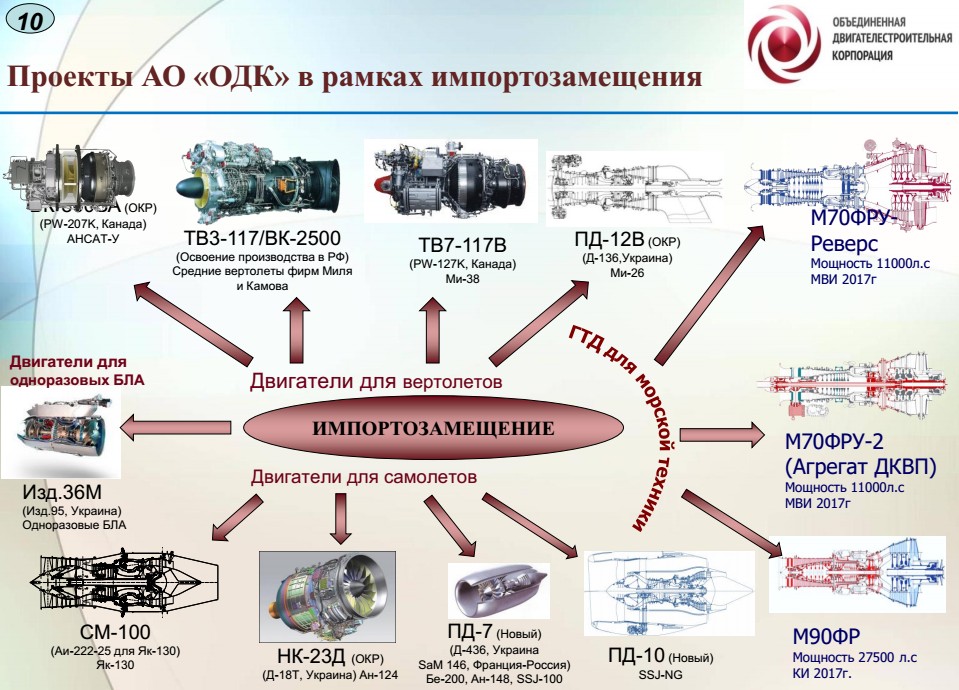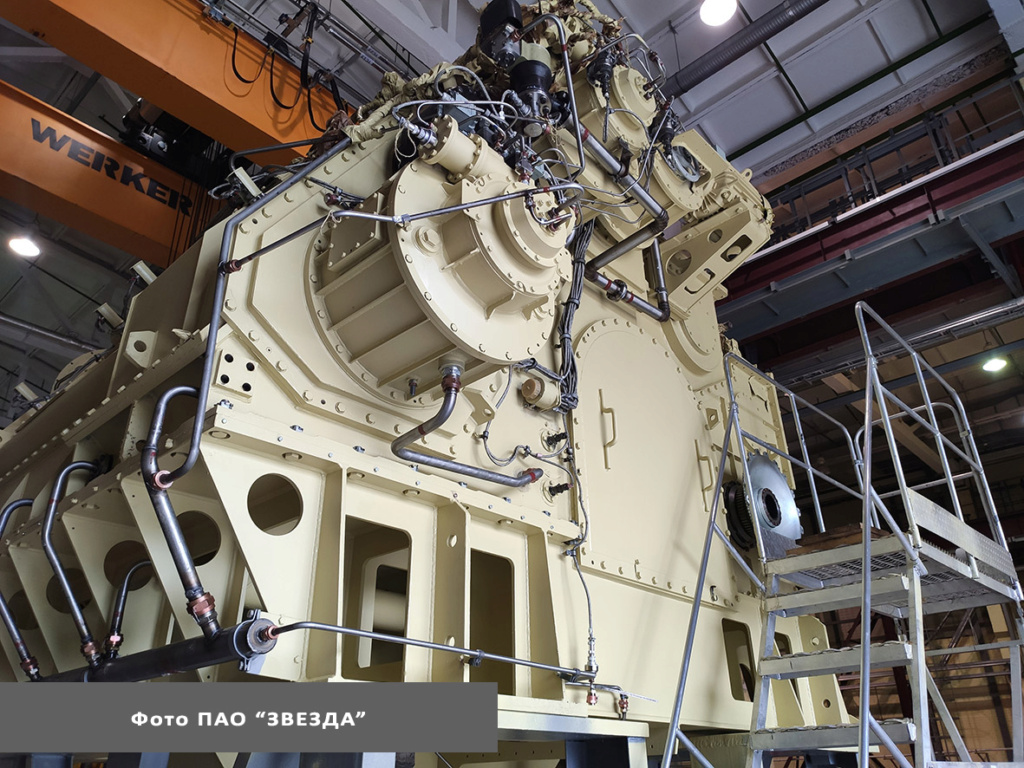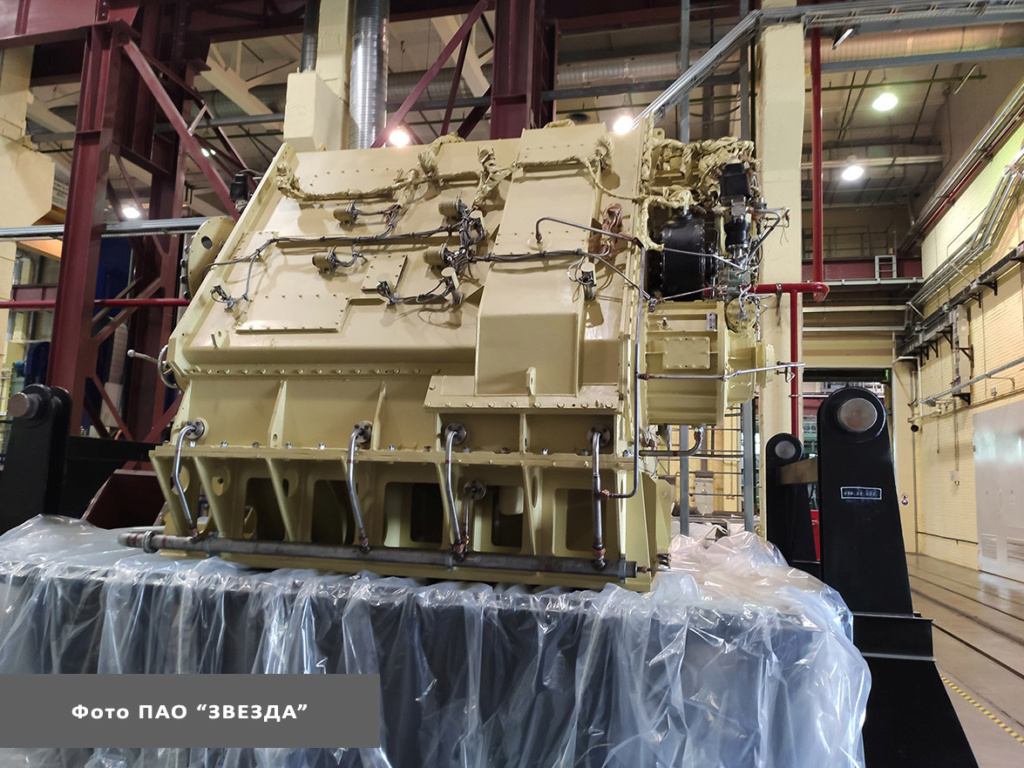and when is this going to get sorted out? its been 6 years since Ukraine blocked sale of ship engines to Russia, how much more time does Russia need to develop a working domestic engine? 20 years? 30? by that time the engine they are making will be obsolete
German companies have been making diesel engines for centuries. So have Russian and Soviet companies but unfortunately for Russia they were Motor Sich based in the Ukraine. Fortunately for Russia those engines weren't super state of the art, so even if the Ukraine wasn't being a dick they would have had to make some serious investments in design and production facilities to get new engines worthy of the new ships they were going in to. But now instead of pumping money into the Ukraine they can pump investment money into Russian companies and the improved engine technology and metalurgy will benefit other Russian projects too.
It will take time to get it right but they will end up with something they own and can export and use in other areas too.
Short term it is a pain in the ass, but in the long term it is actually better than trying to rely on Germany or China.
What has this to do with the Ukraine?
The Soviet marine diesel technology centre was Ukraine. It was where most of the big engines... diesels and gas turbines for ships were developed and built.
Yeah Russia lost a lot of capabilities on diesel engine production and also did not invest on it after the fall of Soviet union... but it was not getting the diesel engines from them. Zorya Mashproekt in Nikolaev made the naval gas turbine engines and the reduction gears, and Russia should be self sufficient on those now...
Developing everything for yourself and actually making stuff that is good enough and world class that wont disadvantage units that use it is slow and expensive... during the 1990s and 00s they were replacing all sorts of things that were made in other Soviet States or even eastern europe (like light helicopters and their engines and jet trainers and their engines). They weren't building many ships during that period... and most of the ones they were building were for export anyway... if they wanted to cut the Ukraine off like that then the Ukraine would have turned to the west a long time ago and everything they made would have been cut off.
It would have been very difficult for the Russian MIC because a lot of what was exported for desperately needed export cash probably could not have happened with those Ukrainian parts and without that money a lot of systems we see now would not exist.
That includes western parts that were not cut off really until 2014... so it gave more time to introduce alternative designs with domestic components... by 2014 Russia was much stronger than it was at any period before so the pain of having to make their own products with their own components was greatly reduced, and the result of all Russian equipment and components will make the economy stronger and more robust...
To start the production of the new items then first the design has to finalised, second the manufacturing process, the actual plants with tooling, and infally the product has to finalished, tested with the other components and with the ship.
If a problem require the modification of the desing then the whole chain has to be rolled back.
The first thing they will do is create or buy or steal decent plans for the engine... preferably digital. They do have experts that make engines already so there might be a few changes they could make to make the engine easier to make or more powerful or more reliable... They would then make a land based test bed and give it a swimming pool sized fuel tank and oil tank etc etc and start running it... after a couple of weeks they can stop it and take it apart and check for wear and tear and then run it again... Any parts that wear out are strengthened or reshaped or made thicker and stronger and put back in the engine... if that improves it... changes are made to the design... after running it for a year or more you put one in a real boat for testing under loads... and your organise serial manufacture of that engine.
If such things were easy then everyone would be making them... people think drones are simple and easy... well the remote control plane a kid could build from a set of plans but digital datalinks and decent cameras with stabilisers and very high magnification are very technical and make the difference between effective tool and crappy pieces of junk. A cellphone camera is not good enough... you need to be able to see objects 10km away clearly and sharply if the drone is operating at 10km altitude...
Good engines in cars can make or break a car design, and really big marine diesels are even more complex...
C'mon, for the US more than 20 years wasn't enought to make usable F-35 aircrafts, in the original design specification.
When you earn good money fixing problems... you really don't want to actually fix them because that means the job is over... and you need another job.
France doesn't make its own titanium bits in its own jet engines... and they have plenty of high tech capabilities... I would rate the Rafale as being better than an F-22 simply because I think both aircraft could defeat each others missiles and in a gun fight I would think the Rafale would win.
They solved the issue partially by decreasing the perfomrance requirements, and by accepting substandard airframes, and pushing even the kichen sink into the project.
They dropped requirements completely... the VSTOL model is now subsonic like a Harrier or it damages itself and stops being stealthy...
But in this case there is a ship, that has a narrow set of parameters, and there is not so much room for mistakes.
The Russians had a lot of technologies but also have a few gaps... this is just a case of spending some money and some time to fill a gap...
Instead of getting started on designing local engines the moment sanctions hit they wasted years waiting and hoping that everything will blow over and that Ukrainians, Finns and Germans will for some inexplicable reason start delivering engines again (we can safely say that they were certain of it)
You say that but we really don't know that. There are thousands of different imported bits of equipment that suddenly stopped and needed to be replaced.... designing and building your own marine diesel engines is not an easy or quick or cheap thing to do so their first choice was to buy the same engine from China... and I would add that is something you have suggested on occasion too have you not?
That didn't work out so great but they haven't been asleep... there is an enormous range of other bits and pieces that have been replaced that were imported... I seem to remember impact resistant seats for ships and vehicles were replaced with domestically made versions, and lighting strips for ships was also found in a domestic provider.
Their experience with Chinese made diesels should give them an idea of the weak points and potential failure nodes that they will need to focus on if they dont want the same problems with their engines.
They haven't just replicated the parts and assembled the engines and sent them off to sea... they are clearly interested in getting the new engines right which I think is a good thing. Bad reputations are hard to shift.
Why did they go with this approach when it was perfectly clear that nobody will ever give them engines ever again? Answer is simple: they are lazy morons and they couldn't be arsed to do complicated stuff like designing and setting up production of engines from scratch
Of course... lazy and stupid... it has to be in their CV or they don't even get considered for the job.
Please post the evidence that they didn't set up production from scratch and in the mean time order some diesels from China because production of diesels from scratch doesn't happen in one or two years... even when you have an engine ready to run it for two years continuously to test it before you put it in a boat. You also take time to examine the design and look for problem areas... the german factories might be able to do things your factories can't... they might be able to make things out of fewer parts, or you might be able to improve the design by using your 6 axis milling machine to get away with fewer parts... experience with the Chinese diesels will tell you where some obvious weak points are in the design.
They preferred to sit on their asses and hope for the best because, Russia...
What proof do you have of this exactly?
Of course as always time proved them wrong and now they are years behind (see space industry for another example of being proven obviously wrong from the get go)
Of course because all Russians are lazy... that is why the west is so damn afraid of them... but then Ivan Gren is now a success despite early problems... those lazy bastards actually looked at the problems and fixed them... and kept redesigning and improving and now they have something that will work... without having to start over again 3 times like they would have if they listened to you.
The fact is that the boat is a good design and the only problem is the engines... once those problems are sorted out and new engines are made and put in to the boats they can make them in numbers and you will have forgotten you called them lazy idiots... I suspect they wont get an apology... the shipyard making the Ivan Gren didn't get one... the Russian Navy didn't know what they wanted but the shipyard gets the blame every time.
Of course they wouldn't care about Internet trolls who have never planned anything in their lives... that is shown by going to pieces when something goes wrong... and when good planning comes in... you can just delay and change the problems into features... this fighter plane can't fly supersonic... this aircraft carrier can only launch drones and helicopters despite weighing 100K tons...
They had to prioritise, and most likelly the surface ships received the lowest priority.
Especially small ones...







 Kiko
Kiko